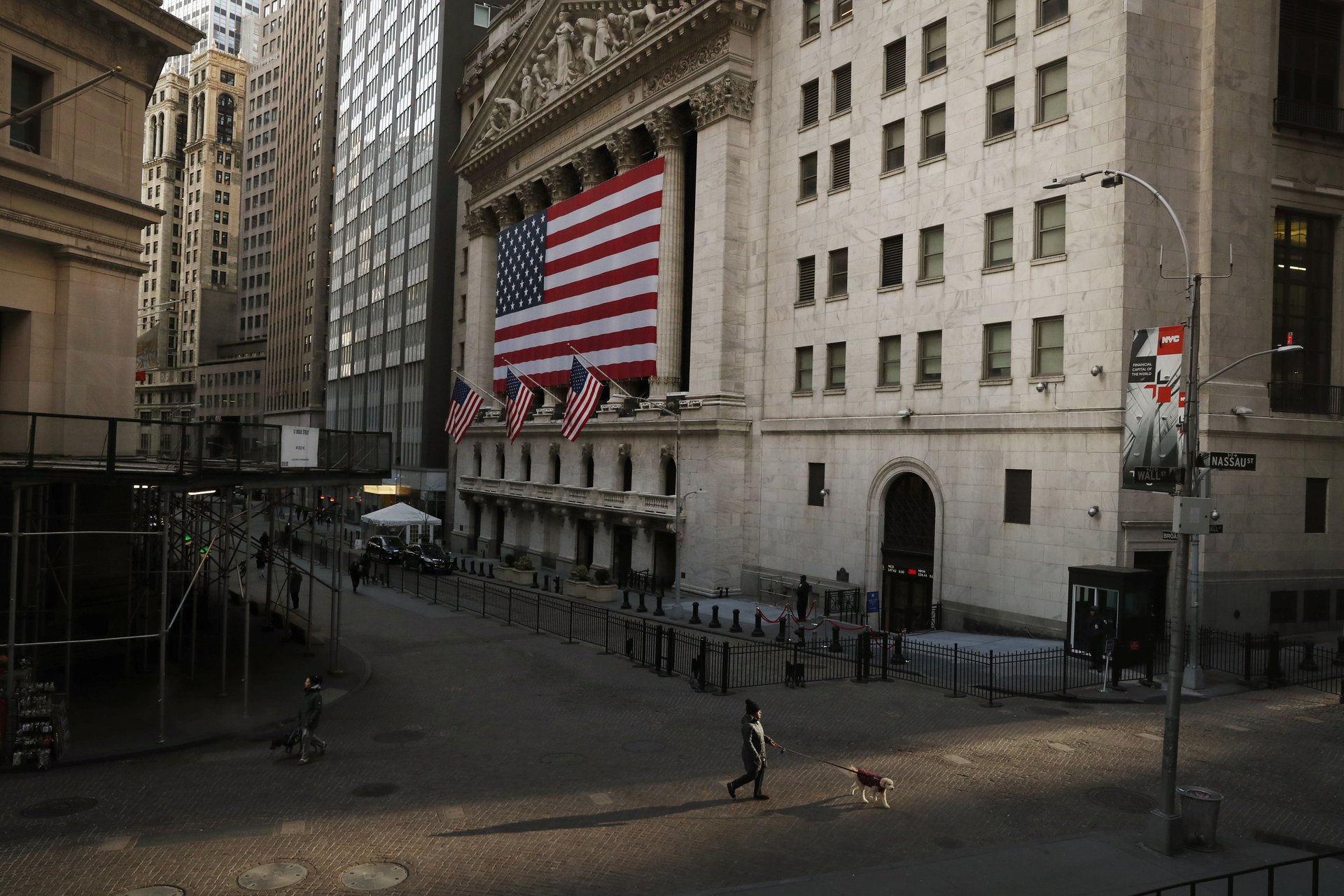Why it’s so hard to hit pause on the economy
The world needs to limit economic activity to allow for social distancing, which will slow the spread of Covid-19. This should be something a prosperous society can do. “Right now we still have plenty of stuff,” Bloomberg’s Joe Weisenthal wrote on Twitter. “And if we were to take a one- or two-month pause on building homes or cars, it wouldn’t be the end of the world.”


The world needs to limit economic activity to allow for social distancing, which will slow the spread of Covid-19. This should be something a prosperous society can do. “Right now we still have plenty of stuff,” Bloomberg’s Joe Weisenthal wrote on Twitter. “And if we were to take a one- or two-month pause on building homes or cars, it wouldn’t be the end of the world.”
The problem, says economist Larry Summers, is that “economic time has stopped, but financial time has not been stopped.” Bills keep coming due and most Americans aren’t prepared—39% of US households couldn’t cover a $400 expense without borrowing money or selling something. The median small business in the US has enough cash on hand to last just 27 days. For businesses and households alike, putting work on hold for a couple of months would be a disaster.
This is the sort of problem financialization is supposed to help with. “In finance you can time travel,” says University of Michigan professor Gautam Kaul in his introductory finance course. Borrowing money can shift spending from the future into the present; lending it can do the opposite. But when everyone wants to time travel in the same direction, things don’t work as well. All that demand for loans drives up prices just as investors, spooked by uncertainty, are searching for safe places to park their money. The market, left to its own devices, will only lend on onerous terms.
And it’s especially hard to hit pause in an economy obsessed with efficiency. For decades, investors have urged companies around the world to trim the fat, including by making sure wages were no higher than strictly necessary for performance. This creates a tradeoff between efficiency and resiliency, argued Roger Martin, professor emeritus at the University of Toronto, in a Harvard Business Review article last year. The US in particular has chosen the former.
To pull off this act of economic time traveling, governments have to step in. In the US, the Small Business Administration has a program to offer “economic injury” loans, which former SBA administrator Karen Mills says “are perfect for today’s environment.” Shrimp fishermen whose businesses were disrupted by the BP oil spill were able to get low-interest loans, for example. These loans can help businesses survive social distancing, but US state governors have to declare an emergency before businesses in their state become eligible.
The limiting factor here isn’t capital but coordination. Governments need to have the capability and the credibility to act, and they must be willing to do so on behalf not just of the powerful but for everyone. Unfortunately, excessive financialization erodes that too. A strong financial sector might promote efficiency and boost growth, but it can also capture the political system, increasing inequality, shifting risk onto individuals, and eroding state capacity. In the US and in many other market economies around the world, we’ve created economies that have to keep moving. If we could travel back 40 years, we’d probably do some things differently.
This essay was originally published in Need to Know: Coronavirus, a Quartz newsletter. Sign up for it here.